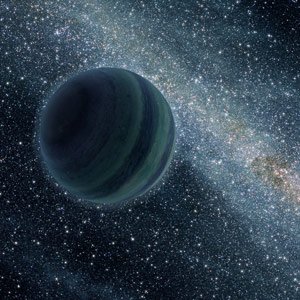New Zealand astronomers and astrophysicists have helped identify a collection of Jupiter-sized free-floating planets that do not orbit stars, but instead drift through space. This first-of-its-kind discovery has captured the attention of the news media.
 The discovery of the exoplanets differs from those observed in the last 15 years, as these lonely planets are not gravitationally bound to host stars – as the planets in our solar system are. The research was published in the journal Nature today.
The discovery of the exoplanets differs from those observed in the last 15 years, as these lonely planets are not gravitationally bound to host stars – as the planets in our solar system are. The research was published in the journal Nature today.
You can read more about the study and comments we collected from the Kiwi astronomers here.
The ‘Sci-Fi’ appeal of free-floating planets drifting through space has lead to wide coverage in New Zealand. The story featured on the front page of today’s Dominion Post and ran in the Otago Daily Times and on the Press, TVNZ and TV3 News websites. Radio New Zealand’s Will Hine also produced a segment on the planets for Morning Report.
Interest in the planets seems universal, with countless overseas news outlets covering the breakthrough. Example include:
BBC News: ‘Free-floating’ planets found with no star in sight
New Scientist: ‘Lonely planets’ may outnumber star-hosted worlds
Time Magazine: Rogue Planets: Billions of Jupiters on the Loose in the Milky Way
ABC News: Lonely Planet: Worlds Found Wandering Interstellar Space
National Geographic: Alien Planets Outnumber Stars, Study Says
New York Times: Billions of Lonely Planets, Adrift in Space
Popular Mechanics: Our Galaxy Is Littered with Orphan Planets
A short clip from Massey University, with Dr Ian Bond explaining the micro-lensing technique used to spot the orphan planets.